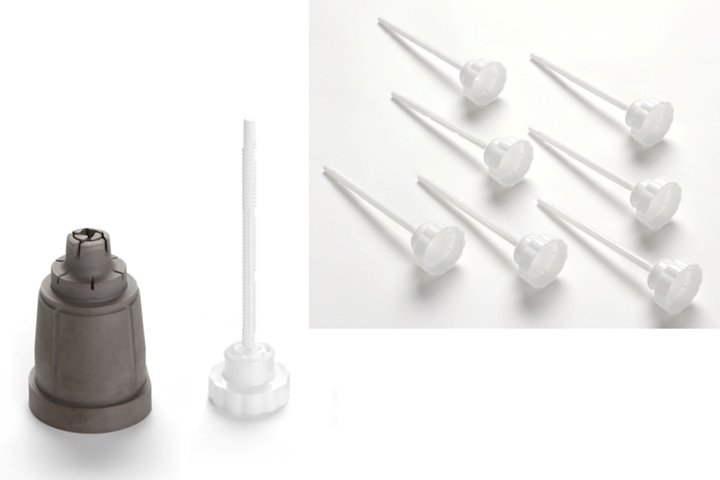New Metal 3D Printing System Accelerates Mold Insert Production
Faster tooling production, including the manufacture of precision metal mold inserts, can be achieved via Mantle’s new metal 3D printing technology.
Mantle has a clear mission: It wants to help moldmakers, molders and OEMs accelerate and improve how they bring products to market by reducing the complexity and cost of making inserts. In line with this goal, the company highlights its new metal 3D printer, which can reportedly produce precision metal mold inserts from a CAD file in a fraction of the time and cost of conventional manufacturing, without requiring programming. These tool steel inserts can be used for prototype tooling, production tooling and conformal cooling applications.
The technology combines additive 3D printing of metal pastes with subtractive machining to meet the requirements of the tooling industry, including:
- Surface finish of 1-4 µm Ra, comparable to EDM.
- Accuracy within 0.004" across 4" inserts.
- Fine features and sharp details.
- Distinctive conformal cooling designs that could not be made with traditional methods.
The company says it has developed two tool steel materials, including P20 and H13, and has demonstrated that these materials perform in a manner comparable to traditional tool steels. The materials are said to be stable for secondary operations and use the same processes for machining, grinding, EDM operations, laser welding, coating and polishing.
Moreover, Mantle tools have been used to produce more than one million end-use parts for customers. These tools have been produced with shorter lead times and lower costs than tools made traditionally, according to the company.

Photo Credit: Mantle Inc.
A prime example of the durability of Mantle’s inserts can be seen in the company’s collaboration with Tessy Plastics, a global contract manufacturer. Tessy used Mantle’s 3D-printed metal mold inserts in a high-cavitation injection mold to produce components for high-volume personal-care products. Instead of conventional subtractive machining, two test inserts were additively manufactured via Mantle’s technology. After 850,000 cycles, Mantle’s P20 and H13 inserts were said to be as accurate and durable as machined S7 steel inserts — and performed just as well. Tessy also confirmed that the printed inserts — produced in 60 hours, including a small amount of machining — were completed 60% faster than the 150 hours required for conventionally machined inserts.
Related Content
-
2024 Moldmaking Insights: A Year in Review Part 2
A look back at the top moldmaking trends of 2024, as revealed through MMT's analytics. This review highlights the most popular technical articles, case studies, tips and best practices that captured the industry's attention over the past year.
-
Mold Materials, 3D Printing Technologies for Next-Gen Moldmaking
As moldmaking advances, so too do the materials and processes involved in their efficient production, including these latest mold materials and 3D printing technologies.
-
3D Printing Innovates Hot Runner Manifold Design
Metal 3D printing combined with a conventionally machined manifold block overcomes flow shadows on valve gates and offers faster color changes while providing closer system pitch centerlines between cavities.















